Know Your Bible Class 01
Al Krummencher

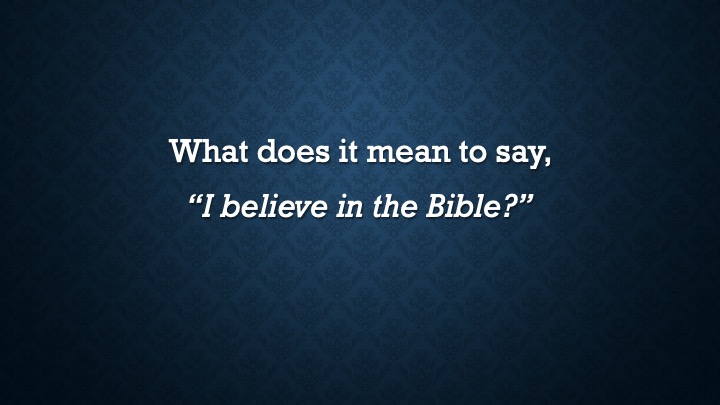
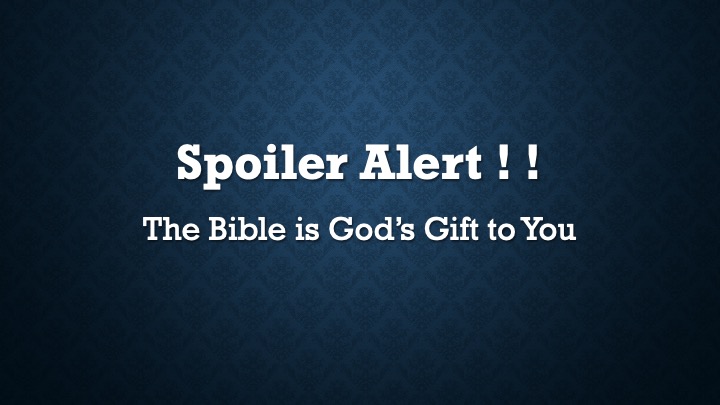
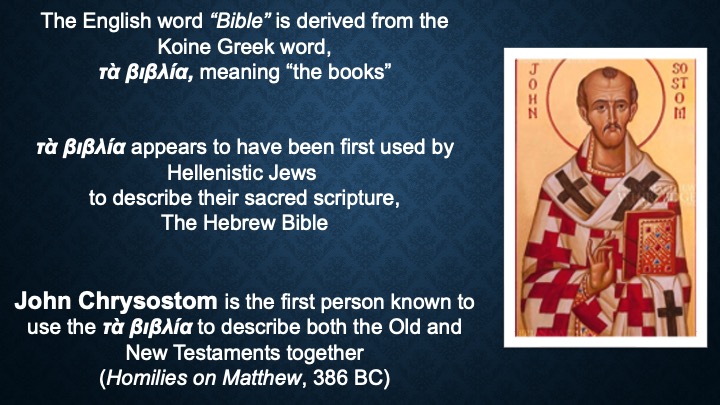
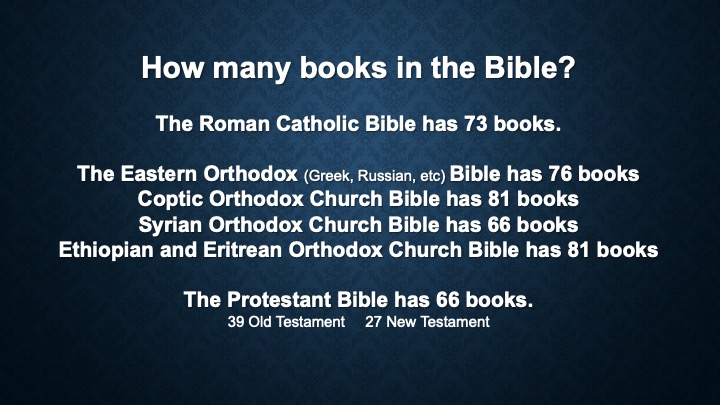
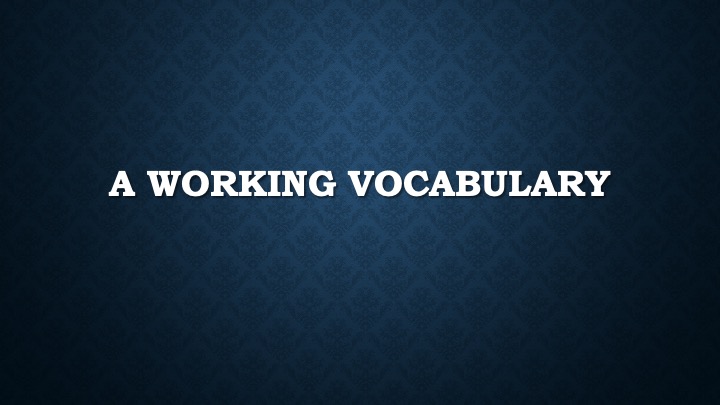
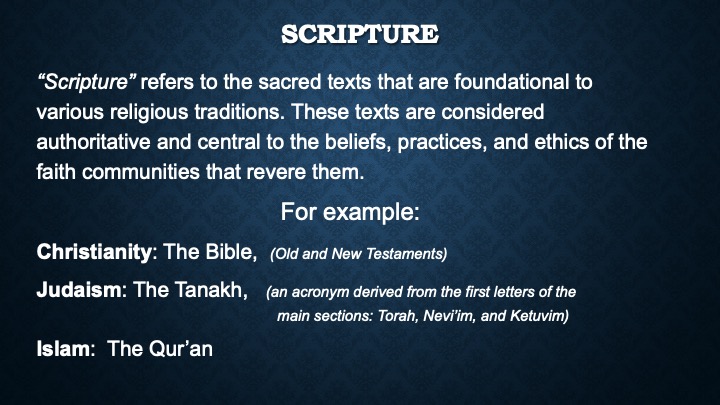
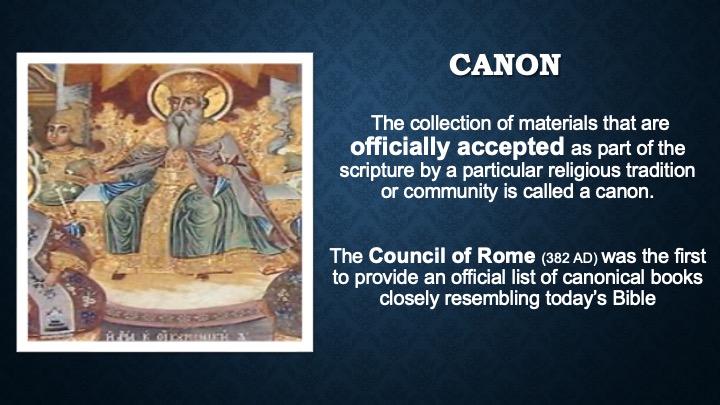
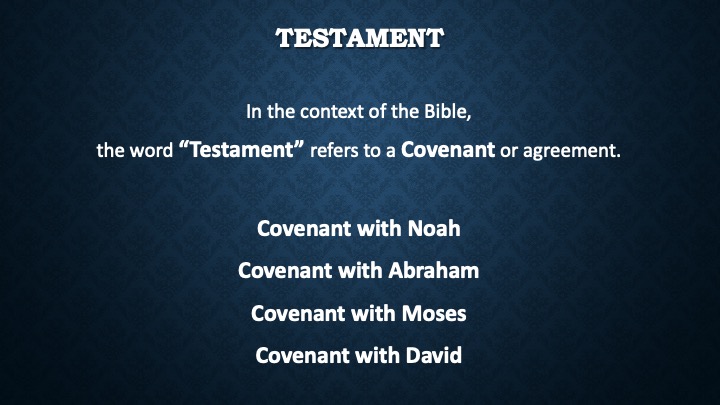
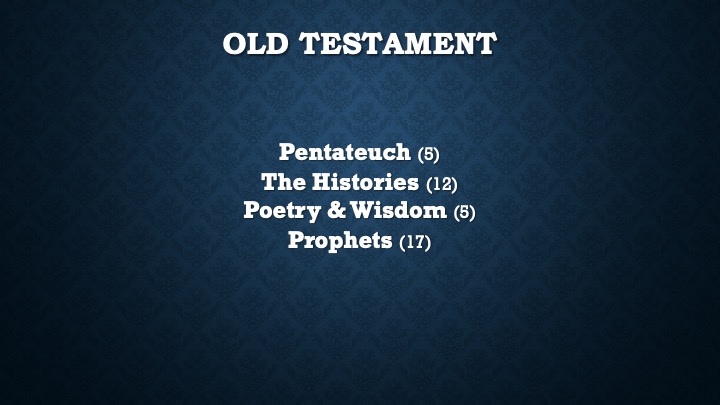

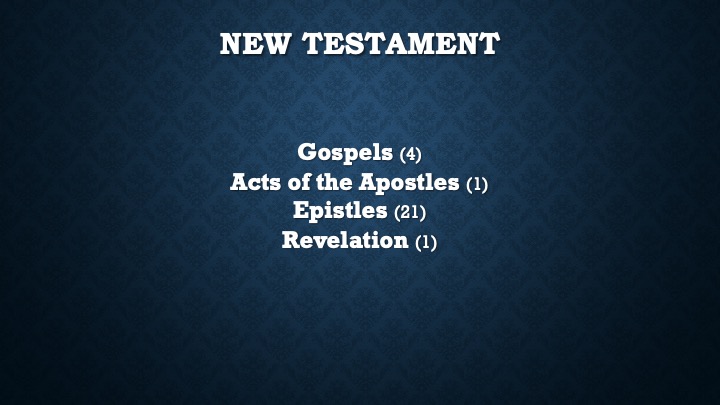
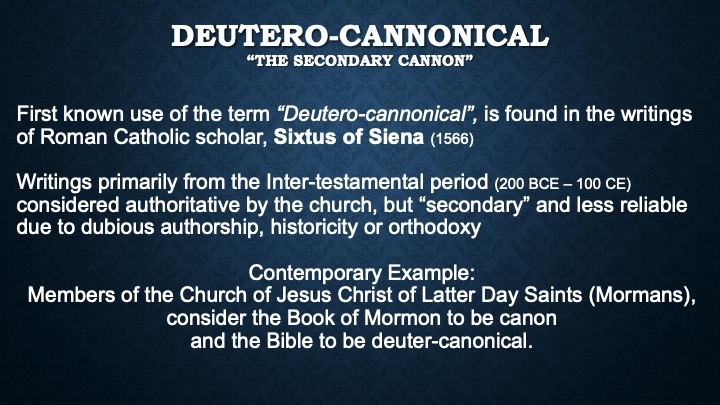
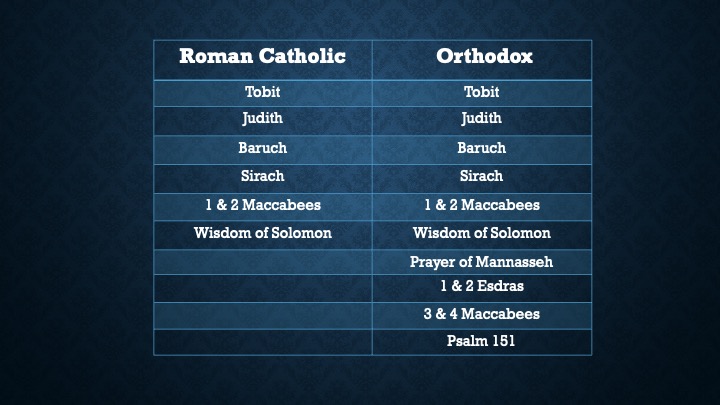
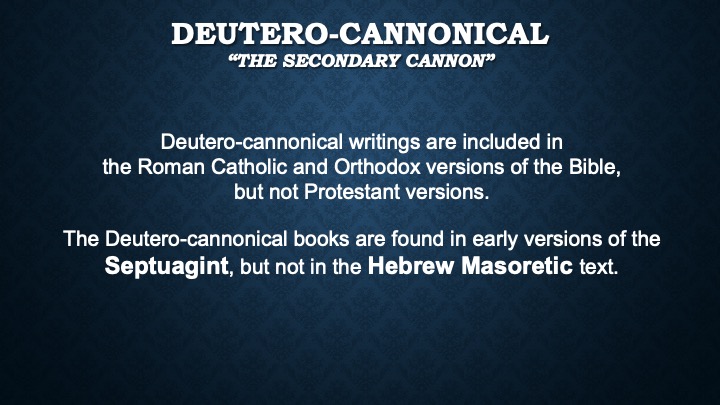
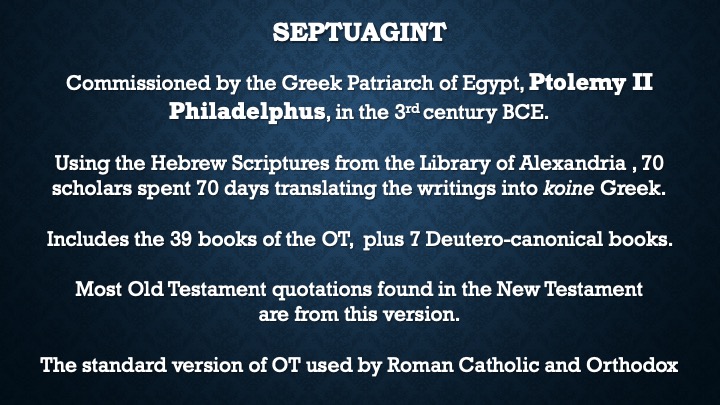
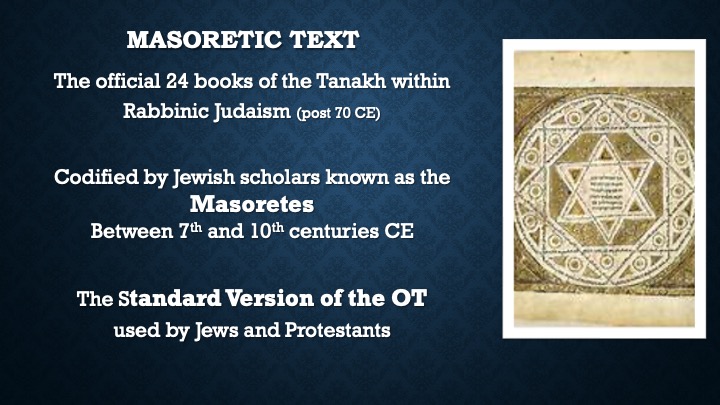
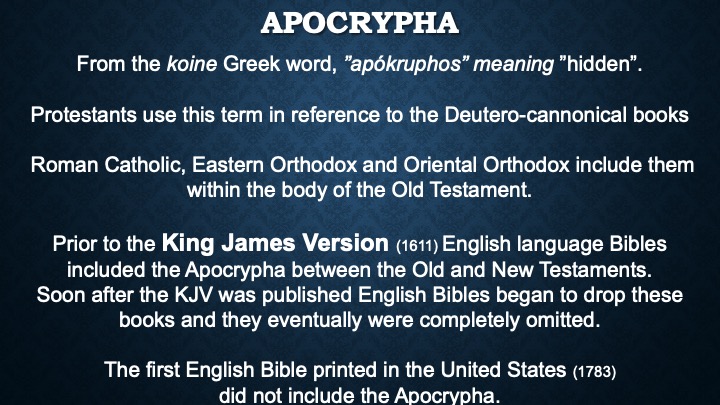
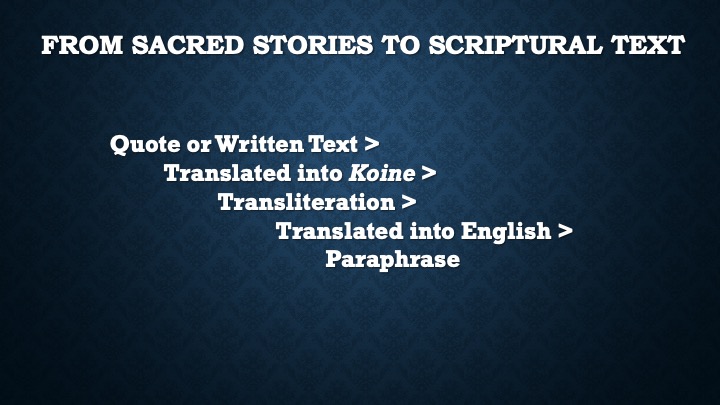
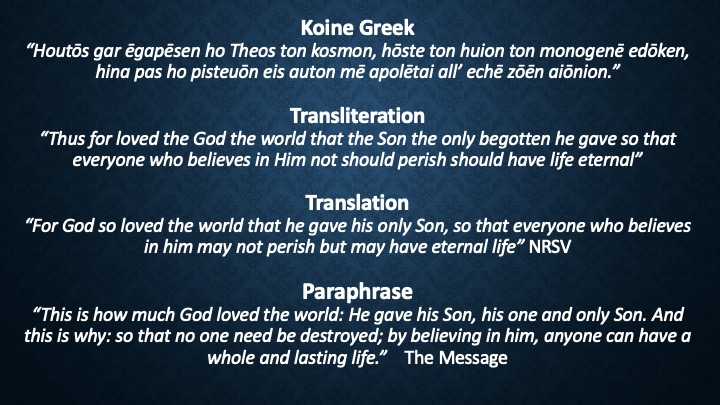
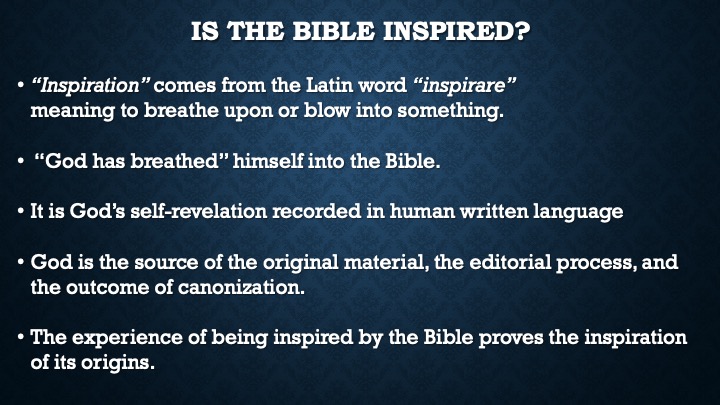
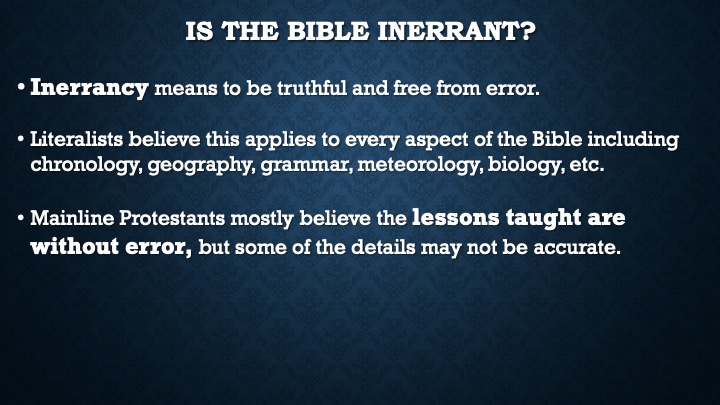
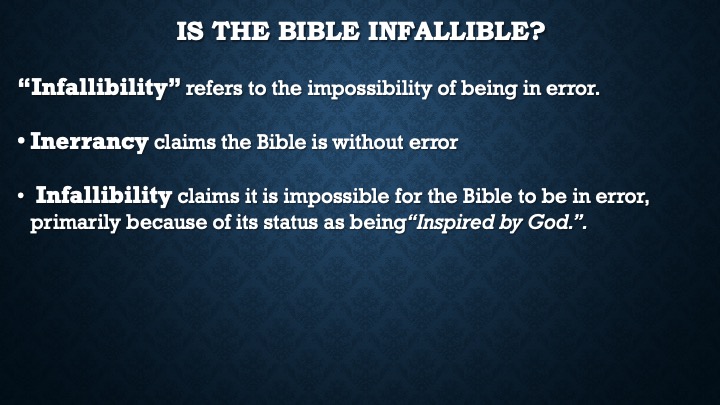

Bible Class 01
Links
< Home Page > < Top of Page >
Bible 01 Text
Bible 01 Text Know Your Bible Week One
What does it mean to say, “I believe in the Bible?”
Spoiler Alert ! The Bible is God’s Gift to You
The English word “Bible” is derived from the Koine Greek word, τὰ βιβλία, meaning “the books”. τὰ βιβλία appears to have been first used by Hellenistic Jews to describe their sacred scripture,
The Hebrew Bible
John Chrysostom is the first person known to use the τὰ βιβλία to describe both the Old and New Testaments together (Homilies on Matthew, 386 BC)
How many books in the Bible?
The Roman Catholic Bible has 73 books.
The Eastern Orthodox (Greek, Russian, etc) Bible has 76 books
Coptic Orthodox Church Bible has 81 books
Syrian Orthodox Church Bible has 66 books
Ethiopian and Eritrean Orthodox Church Bible has 81 books
The Protestant Bible has 66 books. 39 Old Testament 27 New Testament
A Working Vocabulary
Scripture
“Scripture” refers to the sacred texts that are foundational to various religious traditions. These texts are considered authoritative and central to the beliefs, practices, and ethics of the faith communities that revere them.
For example:
Christianity: The Bible, (Old and New Testaments)
Judaism: The Tanakh, (an acronym derived from the first letters of the main sections: Torah, Nevi’im, and Ketuvim)
Islam: The Qur’an
Canon
The collection of materials that are officially accepted as part of the scripture by a particular religious tradition or community is called a canon.
The Council of Rome (382 AD) was the first to provide an official list of canonical books closely resembling today’s Bible
Testament
In the context of the Bible, the word “Testament” refers to a Covenant or agreement.
Covenants
Covenant with Noah
Covenant with Abraham
Covenant with Moses
Covenant with David
Old Testament
Pentateuch (5)
The Histories (12)
Poetry & Wisdom (5)
Prophets (17)
Jeremiah 31: 30-33
The days are surely coming, says the Lord, when I will make a new covenant with the house of Israel and the house of Judah. It will not be like the covenant that I made with their ancestors when I took them by the hand to bring them out of the land of Egypt—a covenant that they broke, though I was their husband, says the Lord. But this is the covenant that I will make with the house of Israel after those days, says the Lord: I will put my law within them, and I will write it on their hearts; and I will be their God, and they shall be my people.
Luke 22:20
And Jesus said, “This cup that is poured out for you is the new covenant in my blood.”
New Testament
Gospels (4)
Acts of the Apostles (1)
Epistles (21)
Revelation (1)
Deutero-canNonical
“The Secondary Cannon”
First known use of the term “Deutero-cannonical”, is found in the writings of Roman Catholic scholar, Sixtus of Siena (1566).
Writings primarily from the Inter-testamental period (200 BCE – 100 CE) considered authoritative by the church, but “secondary” and less reliable due to dubious authorship, historicity or orthodoxy
Contemporary Example:
Members of the Church of Jesus Christ of Latter Day Saints (Mormans), consider the Book of Mormon to be canon and the Bible to be deuter-canonical. Roman Catholic Orthodox Tobit Tobit Judith Judith Baruch Baruch Sirach Sirach 1 & 2 Maccabees 1 & 2 Maccabees Wisdom of Solomon Wisdom of Solomon Prayer of Mannasseh 1 & 2 Esdras 3 & 4 Maccabees Psalm 151
Deutero-canNonical
“The Secondary Cannon”
Deutero-cannonical writings are included in the Roman Catholic and Orthodox versions of the Bible, but not Protestant versions.
The Deutero-cannonical books are found in early versions of the Septuagint, but not in the Hebrew Masoretic text.
Septuagint
Commissioned by the Greek Patriarch of Egypt, Ptolemy II Philadelphus, in the 3rd century BCE. Using the Hebrew Scriptures from the Library of Alexandria , 70 scholars spent 70 days translating the writings into koine Greek. Includes the 39 books of the OT, plus 7 Deutero-canonical books.
Most Old Testament quotations found in the New Testament are from this version. The standard version of OT used by Roman Catholic and Orthodox
Masoretic Text
The official 24 books of the Tanakh within Rabbinic Judaism (post 70 CE)
Codified by Jewish scholars known as the Masoretes Between 7th and 10th centuries CE. The Standard Version of the OT used by Jews and Protestants
Apocrypha
From the koine Greek word, ”apókruphos” meaning ”hidden”.
Protestants use this term in reference to the Deutero-cannonical books
Roman Catholic, Eastern Orthodox and Oriental Orthodox include them within the body of the Old Testament.
Prior to the King James Version (1611) English language Bibles included the Apocrypha between the Old and New Testaments.
Soon after the KJV was published English Bibles began to drop these books and they eventually were completely omitted.
The first English Bible printed in the United States (1783) did not include the Apocrypha.
From Sacred Stories to Scriptural Text
Quote or Written Text >
Translated into Koine >
Transliteration >
Translated into English >
Paraphrased >
Koine Greek
“Houtōs gar ēgapēsen ho Theos ton kosmon, hōste ton huion ton monogenē edōken, hina pas ho pisteuōn eis auton mē apolētai all’ echē zōēn aiōnion.”
Transliteration
“Thus for loved the God the world that the Son the only begotten he gave so that everyone who believes in Him not should perish should have life eternal”
Translation
“For God so loved the world that he gave his only Son, so that everyone who believes in him may not perish but may have eternal life” NRSV
Paraphrase
“This is how much God loved the world: He gave his Son, his one and only Son. And this is why: so that no one need be destroyed; by believing in him, anyone can have a whole and lasting life.” The Message
Is the Bible Inspired?
• “Inspiration” comes from the Latin word “inspirare” meaning to breathe upon or blow into something.
• “God has breathed” himself into the Bible.
• It is God’s self-revelation recorded in human written language
• God is the source of the original material, the editorial process, and the outcome of canonization.
• The experience of being inspired by the Bible proves the inspiration of its origins.
Is the Bible Inerrant?
• Inerrancy means to be truthful and free from error.
• Literalists believe this applies to every aspect of the Bible including chronology, geography, grammar, meteorology, biology, etc.
• Mainline Protestants mostly believe the lessons taught are without error, but some of the details may not be accurate.
Is the Bible Infallible?
“Infallibility” refers to the impossibility of being in error.
• Inerrancy claims the Bible is without error
• Infallibility claims it is impossible for the Bible to be in error, primarily because of its status as being“Inspired by God.”.